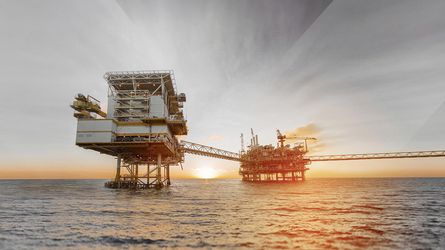
Oil & Gas
You can rely on 60 years of experience in the construction of pumps, packages, skids, and systems for onshore and offshore oil and gas production. Take a look at the information now!
Read more
Advantages of LEWA packages for methanol injection:
Other advantages
Methanol is a by-product of refining processes.
Properties of methanol:
Methanol is highly flammable and burns with a bright flame. It is barely visible in daylight, making it extremely dangerous. Flammable gas/air mixtures can form, and electrostatic combustion is possible (even at concentrations as low as 25%) Its decomposition products are carbon dioxide, carbon monoxide and formaldehyde.
Methanol itself is not toxic, but the enzymes that capture it in the human body form formaldehyde and formic acid. These products are highly reactive (formaldehyde) or extremely acidic (formic acid). Its reaction time in the body is 15 hours or more, so the actual cause of the poisoning often can no longer be determined. Methanol must therefore be handled with extreme caution and processed as leak-tight and leak-free as possible.
Use of LDHI:
In rare cases a methanol substitute is used, so-called LDHIs (Low Dosage Hydrate Inhibitors). This is the case when the later refining process does not tolerate methanol, since the last water preparation step is carried out biologically. The microbes that are used for the final removal of oil residues are killed by methanol. Since LDHIs are more expensive than methanol, they are only used if actually specified.
During use it must be taken into account that LDHI injection quantities are significantly lower, normally only 1/10 or 1/20 the quantity of the methanol. In addition, at high pressures (>350 bar) they can crystallize and become very abrasive and, for example, require the use of tungsten carbide valves.